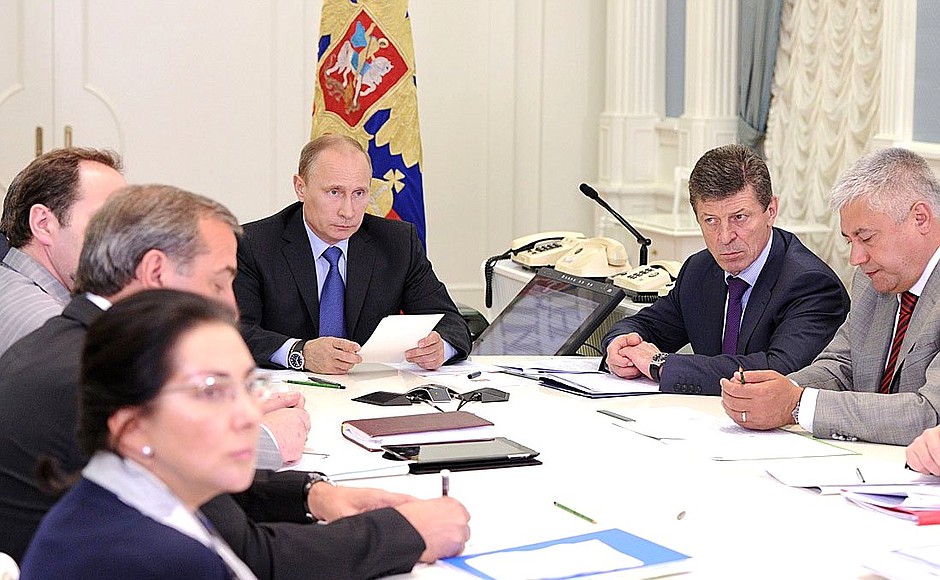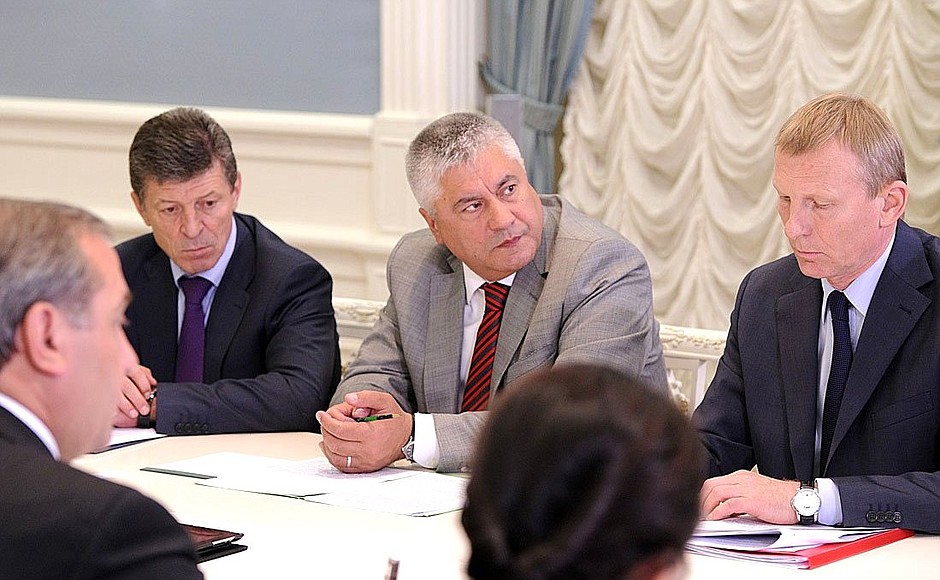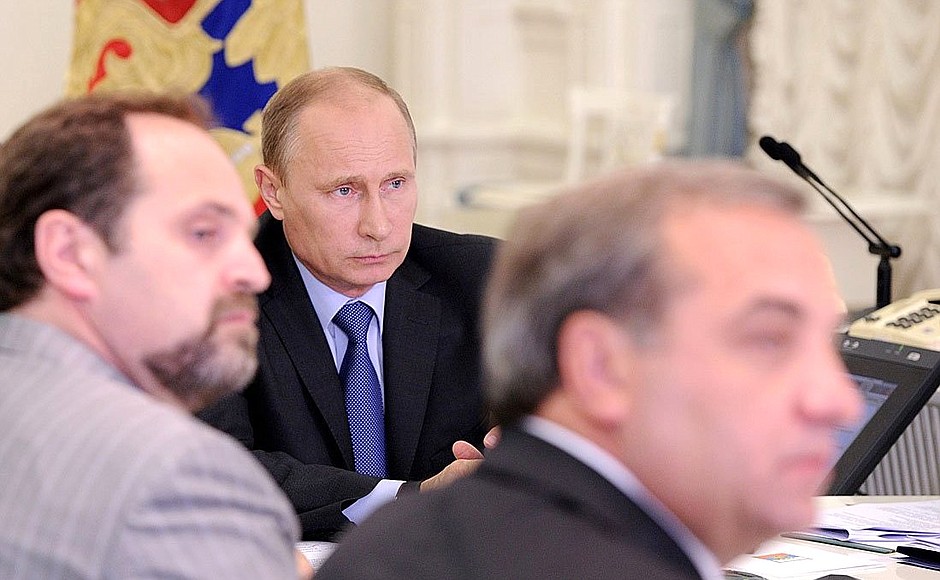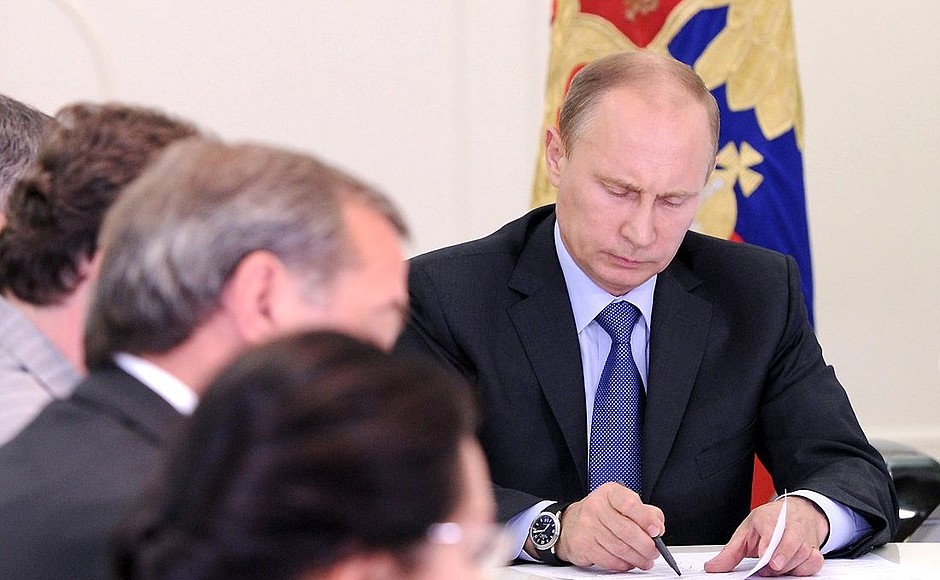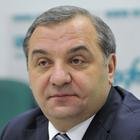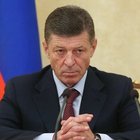President of Russia Vladimir Putin: Good afternoon, colleagues.
We have repeatedly discussed issues arising from current adverse weather conditions in many Russian regions, namely in the Volga, Urals, and above all the Far Eastern federal districts. The situation in the Amur Region in the Far East is particularly unfavourable; in the Zeya River basin, 32 towns are flooded, traffic has been disrupted and 1,200 people have been evacuated.
Let me repeat once more that we have repeatedly talked with many of our meeting’s participants about the situation in various regions and the priority actions that should be taken.
Today we will see via live video link-up what has been done and what still remains to do. I want to hear your evaluations of how the situation is developing. As we agreed, particular attention should be paid to the water facilities and reservoirs. Of course, first and foremost this should be done for people’s benefit, to ensure their security and wellbeing. People in many localities are facing great difficulties. I know that the Emergencies Ministry, local authorities, and various Armed Forces units are all working actively. Let’s carefully analyse the situation and, most importantly, look at how it might develop, and what we need to do in the near future.
Naturally, I would ask the heads of regions, relevant services and federal agencies to analyse the situation in the light of the need for long-term assistance, infrastructure repairs and support for local residents in rebuilding their economy and restoring damaged property.
Please, let’s get to work.
<…>
Vladimir Putin: First of all, I would like to note that since last year’s tragedy in Krasnodar Territory, some necessary steps have indeed been taken. This has allowed us to respond fairly efficiently to adverse climactic and weather conditions of this kind in the regions that we consider to have been affected.
Indeed, this is a huge amount of work and vast territories: seven regions, including five in a state of emergency. These are large territories, and they require particular attention from regional and federal authorities. So I feel it is exceedingly important to focus attention on helping people, which is exactly what you have been doing up to now. First and foremost, we must focus on children, elderly people, people with disabilities, pregnant women, and those who are unable to handle the problems they are facing today on their own.
I know that a great deal has already been done. I will talk about this in a minute, and give a corresponding assessment. And naturally, we now need to look at places of temporary accommodation to see what state they are in, what are the conditions for people there, whether there is water and food available, whether there is order and security. In the very near future, we will certainly need to give special attention to medicine and agriculture in the areas where it has suffered damage – and indeed, it has suffered nearly everywhere, – as well as timely compensation payments in accordance with the law.
We have a working group headed by Emergencies Minister Vladimir Puchkov. I ask everyone to continue this work, and please bear in mind that this working group is headed by the Emergencies Minister. At the final stage, when it will be necessary to finalize everything and determine the amount of payments, compensations and assistance to the regions and people, sort out infrastructure rehabilitation issues, I am asking you, Mr Kozak, as Deputy Prime Minister, to coordinate all this work of relevant ministries and departments.
Deputy Prime Minister Dmitry Kozak: Okay.
Vladimir Putin: I would like to thank you all for the work that has been done up until now. If we ask around, I’m sure we will hear plenty of criticism concerning the way we are doing our work. However, overall, we have been able to keep the situation under control. I hope that this trend will continue. We shouldn’t get disheartened or just hope that things will eventually get back to normal; instead, we need to be prepared for any scenario. Government agencies and citizens must have access to timely information; transport must be ready, as should reception and accommodation centres, and we need to ensure order. We should focus our resources on providing timely assistance to the regions and, as I already said, specific people.
Let’s agree to continue this work. I will get back to it very soon. And when I visit the territories in the corresponding regions, I would like to ask that you be prepared to report on how this work is progressing.
Thank you very much.
